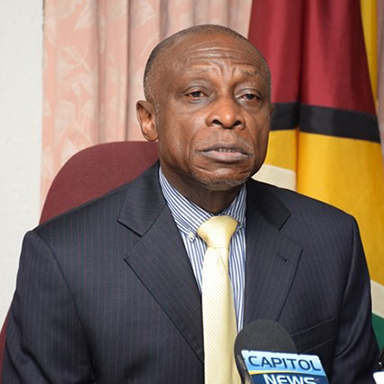Guyana’s government is reviewing the Protocol on Contingent Rights, which will enable the spouses and children of skilled workers to travel with them across the region, Minister of Foreign Affairs Carl Greenidge has said.
“We are reviewing all the documents that were presented to the Heads. That will come in time. We will sign all that we are supposed to sign in good time,” Greenidge told Sunday Stabroek, when asked why government did not sign the protocol, which was signed by six states at the recent 39th Regular Meeting of CARICOM Heads of Government in Jamaica.
The Ministry of Foreign Affairs, he said, “does not sign off on these matters without the final draft first being cleared with the Attorney General’s Chambers and the executing agencies.” There were issues, he said, which other countries had objected to and which were subjected to considerations. He did not say what those issues were. The protocol, which was signed by Barbados, Grenada, Haiti, Jamaica, St Lucia and Suriname, paves the way for “family unifications through the granting of important rights to spouses and dependents of citizens that move across the region to work to provide their services at established companies,” said CARICOM Chairman, Jamaican Prime Minister Andrew Holness at the press conference held at the end of the heads meeting in Jamaica.
Holness said this was a longstanding matter and a major step that will encourage greater use of the free movement regime as it ensures greater level of comfort and peace of mind for families. “This is a crucial step to making CARICOM more functional and relevant to the people of the region,” Holness had said.
Barbados Prime Minister Mia Mottley had on the occasion said that when she was last in government, “the Protocol on Contingent Rights was there ready for signature. Ten years have elapsed since.” For this protocol to have been signed, she had said, was the most significant event in the history of Caribbean affairs since the single market was signed in Jamaica and came into effect in 2006.
The Heads also agreed that all member states will put in place the necessary legislative framework to facilitate all ten approved categories of skills by December 31st, 2018.
The ten categories are: university graduates, artists, musicians, sportspersons, media workers, nurses, teachers, associate degree graduates, domestics and artisans.
Also agreed to at the meeting were common procedures on the refusal of entry of CARICOM nationals travelling across the region.






